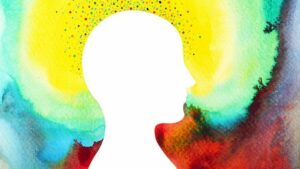Depression eating disorder is a condition that affects many people. Unfortunately, it is often misunderstood and goes untreated. In this blog post, we will discuss depression and eating disorders in detail and provide information on how to get help. If you or someone you know is struggling with a depression eating disorder, please don’t hesitate to reach out for help!
Contents
- 1 What Is A Depression Eating Disorder?
- 2 Link Between Depression And Eating Disorders
- 3 What Are The Risk Factors?
- 4
- 5 Types Of Eating Disorders From Depression
- 6
- 7 Types Of Depression From Eating Disorders
- 8
- 9 How Can Therapies Help?
- 10
- 11 How Can Medications Help?
- 12 How Can Self-Care Strategies Help?
- 13 Conclusion
What Is A Depression Eating Disorder?
Depression eating disorder is not about being overweight or underweight. It’s about using food to make yourself feel better even if it means harming your body in the process. It is an unhealthy relationship with food and weight.
You tend to see yourself in a negative light and feel as though you are not good enough. As a result, you turn to food for comfort. Both conditions, depression and eating disorder are overlapped as one may lead to another or vice versa.
Link Between Depression And Eating Disorders
There is a strong link between depression and eating disorders. Individuals with depression are more likely to develop an eating disorder, and individuals with eating disorders are more likely to be depressed. The two conditions often occur together.
Depression and eating disorders can also have similar symptoms. Both can cause weight loss or gain, changes in sleep patterns, fatigue, irritability, and social withdrawal. Depression may also cause feelings of hopelessness and worthlessness, as well as suicidal thoughts. Therefore, it can be said that depression and eating disorders share a lot in common. There exists a fine line between the two conditions, making it hard to diagnose one without the other.
What Are The Risk Factors?
Many factors can trigger depression and eating disorders. Some of the most common triggers include:
Feeling Overwhelmed Or Stressed
There are several different ways that feeling overwhelmed or stressed can cause depression or an eating disorder.
For example, if you’re constantly worrying about money, your job, or your relationships, it’s natural that you would start to feel down for some time. But further, this can lead to depression and/or an eating disorder because you may become preoccupied with food as a way to cope with your stress.
Feeling Helpless
When individuals feel hopeless or helpless, they may develop depression or an eating disorder. Feeling hopeless or helpless can cause depression or an eating disorder because these emotions can lead to negative thoughts and behaviors.
For example, someone who feels hopeless may believe that their situation will never improve, which can lead to them giving up on treatment or recovery. Similarly, someone who feels helpless may believe that they are powerless to change their circumstances, which can lead them to engage in self-destructive behaviors such as binge eating or purging.
Low Self-Esteem
Self-esteem is our overall opinion of ourselves. This can be influenced by our success, appearance, and what others think of us. When we have low self-esteem, we may not feel good about ourselves or think that we’re not worth very much. This can lead to depression or an eating disorder.
Perfectionism
When individuals set unreasonably high standards for themselves and then beat themselves up emotionally if they don’t meet those standards. This can lead to depression because the individual is constantly dwelling on their failures and not celebrating their successes.
It can also lead to an eating disorder because the individual may start using food as a way to cope with their negative emotions. Another way that perfectionism can cause depression or an eating disorder is when individuals compare themselves to others. If they believe that everyone else is doing better than them, it can lead to feelings of inadequacy and depression.
Negative Body Image
Negative body image can lead to depression in a few different ways. For one, individuals who are unhappy with their bodies may withdraw from social activities and isolate themselves. This isolation can then lead to depression.
Additionally, people with negative body images may develop eating disorders as a way to cope with their depression. Eating disorders involve using food as a way to numb emotional pain, which can further worsen depression.
Finally, negative body image can cause people to obsess over their appearance and weight, leading to excessive exercise or dieting behaviors that can also contribute to depression.
Dieting Or Restrictions Around Food
When we feel deprived of something, it can lead to intense feelings of frustration, anger, and even despair. These feelings can then lead to depression and disordered eating behaviors.
Another way that dieting can cause depression is by increasing body dissatisfaction. When we see our bodies changing in response to dieting (e.g., losing weight), it can lead to negative thoughts and feelings about our bodies.
Finally, dieting or food restriction can also lead to an unhealthy focus on food and calorie counting. This can become an obsession that takes over our thoughts and leads to anxiety and depression. It can also lead to orthorexia, which is an eating disorder characterized by an obsession with healthy eating.
Trauma Or A History Of Abuse
Trauma can cause the release of stress hormones, which can lead to changes in the brain circuitry and neurotransmitter systems. These changes can make someone more prone to developing depression or an eating disorder.
Another way that trauma or a history of abuse can cause depression or an eating disorder is by affecting a person’s coping mechanisms. A person who has experienced trauma may develop unhealthy coping mechanisms, such as self-harm, drug use, or disordered eating, to deal with the pain they are feeling. This can lead to further emotional difficulties down the road, including depression and eating disorders.
A Family History Of Depression Or Eating Disorders
Much research suggests that there may be a genetic predisposition for these conditions. This means that if your parents or grandparents had depression or an eating disorder, you may be more likely to experience these problems yourself.
Additionally, family members can model behaviors and attitudes that contribute to the development of depression or an eating disorder. For example, if a parent frequently talks about dieting and weight loss, their child may learn to view their own body negatively and develop unhealthy eating habits as a result.
Chronic Illness Or Pain
Someone with a chronic illness may become depressed because they are unable to do the things they used to be able to do. This can lead to feelings of worthlessness and hopelessness. Additionally, chronic pain can be extremely debilitating and make it difficult to carry out even basic tasks. This can also lead to depression.
Eating disorders can also be caused by chronic illnesses or pain. For example, someone with a chronic illness may develop an eating disorder because they feel that they need to be thin to be healthy. Additionally, someone who is in constant pain may turn to food for comfort. This can lead to binge eating and eventually an eating disorder.
Types Of Eating Disorders From Depression
There are many different types of eating disorders that can be brought on by depression. Each one of these disorders comes with its own set of symptoms and dangers. Some of the common eating disorders include:
Anorexia Nervosa
There are many ways in which depression can lead to anorexia nervosa. For example, depressed individuals may fixate on their weight and appearance as a way of distracting themselves from the negative thoughts and emotions they are experiencing. Depressed individuals may also use food restrictions as a way of punishing themselves for perceived failures or shortcomings.
Additionally, depression can impact an individual’s motivation and energy levels, making it difficult to muster up the strength to eat or take care of oneself. All of these factors can contribute to the development of anorexia nervosa.
Bulimia Nervosa
There are many ways that depression can lead to bulimia nervosa. For example, someone who is depressed may turn to food for comfort. This can lead to overeating, which can then lead to purging in an attempt to control weight gain.
Additionally, depression may cause a person to have negative body image issues and low self-esteem. These factors can also contribute to the development of bulimia nervosa.
Another way depression results in bulimia nervosa are when people use food as a form of self-harm. They may binge eat and then purge in an attempt to make themselves feel better. This can be a very dangerous cycle that is difficult to break out of without professional help.
Binge Eating Disorder
There are a few different ways that depression can lead to binge eating disorder. First, people who are depressed may have a distorted view of their body image. They may see themselves as overweight when they’re actually at a healthy weight, or they may think they’re “fat” even if they’re very thin.
As a result, they may try to “fix” their perceived problem by going on restrictive diets. But instead of losing weight, they may end up bingeing on the very foods they’re trying to avoid.
Another way that depression can lead to binge eating disorder is by affecting a person’s sleep habits. People who are depressed may have trouble falling asleep or staying asleep. This can lead to fatigue and low energy, which can in turn make it difficult to resist the urge to overeat.
Types Of Depression From Eating Disorders
There are a few different types of depression that may result from an eating disorder.
Major Depressive Disorder
An eating disorder can result in depression for several reasons. One reason is that people who suffer from an eating disorder often become very isolated. This isolation can lead to feelings of loneliness and depression.
Another reason is that people with eating disorders often have a distorted view of their bodies. They may see themselves as overweight, even when they are not. This distorted view can lead to low self-esteem, which can trigger depression.
Finally, people with eating disorders often experience physical health problems as a result of their disorder. These physical health problems can also contribute to depression.
Persistent Depressive Disorder
An eating disorder can result in Persistent Depressive Disorder (PDD), which is also known as dysthymia. PDD is a chronic form of depression that lasts for at least two years. Symptoms of PDD include depressed mood, loss of interest or pleasure in activities, fatigue, trouble sleeping, and poor appetite or overeating.
Eating disorders increase the risk of developing PDD because they can cause changes in brain chemistry that lead to depression.
Bipolar Disorder
There are a few ways that an eating disorder can result in bipolar disorder. One way is that the person with the eating disorder may become so underweight and malnourished that they develop symptoms of mania or hypomania.
Another way is that the person with the eating disorder may use food as a way to cope with their depression and this can lead to swings in weight and mood. Finally, someone with an eating disorder may also have underlying genetic factors that predispose them to bipolar disorder.
How Can Therapies Help?
Several therapies may help manage and overcome depression and eating disorders.
Cognitive Behavioral Therapy
CBT teaches people skills for identifying and healthily dealing with their emotions. For example, people might learn how to recognize when they are starting to feel overwhelmed by their emotions and take steps to prevent themselves from becoming too upset.
CBT can also help people with depression and eating disorders to change the negative thinking patterns that contribute to their disorders. People with depression and eating disorders often have negative thoughts about themselves, their bodies, and their ability to cope with life.
CBT helps people to challenge these negative thoughts and beliefs and replace them with more realistic and positive ones. This can lead to a reduction in depression symptoms and an improvement in overall functioning.
Interpersonal Therapy
Interpersonal therapy focuses on helping people understand and improve their relationships with others. It can be an effective treatment for depression eating disorder, as it can help individuals learn how to better communicate and express their needs.
It may also help people to identify negative patterns in their relationships that may contribute to depression or eating disorders. For example, someone who has difficulty communicating their needs to their partner may benefit from learning how to express themselves more assertively.
Depression eating disorder can be a difficult condition to manage and recover from, but interpersonal therapy may offer some relief.
Dialectical Behavior Therapy
DBT focuses on helping people change unhelpful or harmful behaviors and thought patterns. It is often used to treat depression, eating disorders, substance abuse, and other mental health conditions.
DBT may be particularly helpful for treating depression and eating disorders because it emphasizes the importance of balancing opposing ideas or viewpoints. For example, one key DBT concept is dialectics, which involves finding a middle ground between two extremes.
In addition to teaching skills like how to manage emotions and deal with conflict, DBT also includes a strong focus on building a support network. This may be especially beneficial for people with depression and eating disorders who often feel isolated and alone.
Psychodynamic Therapy
Psychodynamic therapy focuses on understanding the unconscious mind and how it affects our current thoughts, feelings, and behaviors. It can help manage depression and eating disorders by providing insight into why we may feel or act in certain ways.
It also emphasizes the importance of relationships in our lives and how they may contribute to our mental health. Through this understanding, we can learn to change unhealthy patterns of thinking and behaving. Psychodynamic therapy typically requires weekly sessions for several months to achieve desired results.
Art Therapy
Art therapy is a form of psychotherapy that uses artmaking as a means of expression and communication. The treatment uses art materials as a means of communicating. It can help people to explore their emotions, thoughts, and experiences in a safe and non-threatening way.
This can be helpful for people who have depression or eating disorders because it can help them to:
- Express themselves in a safe and creative outlet
- Work through difficult emotions
- Improve self-esteem and body image
- Develop coping and problem-solving skills
- Gain insight into their illness
- Learn new ways to relate to others
If you are struggling with a depression eating disorder, consider seeking out a qualified art therapist who can help you to explore your emotions and experiences in a safe and supportive environment.
Music Therapy
Music therapy is an effective treatment for depression and eating disorders. A review of studies found that music therapy was associated with improvements in depression symptoms, quality of life, and body image satisfaction.
Music therapy may be particularly helpful for treating depression and eating disorders because it addresses all four domains of treatment: physical, emotional, mental, and social. Music therapy can help with depression symptoms by providing an outlet for expression, promoting relaxation, and increasing positive emotions.
It can also help improve quality of life by providing a sense of mastery and control, increasing social interaction, and improving body image satisfaction.
How Can Medications Help? 
While there is no one-size-fits-all solution, medication can be an important part of managing and recovering from depression eating disorder.
There are a variety of medications that can be used to treat depression and eating disorders, and the best type of medication will vary depending on the individual. Some common types of medications used to treat depression and eating disorders include Selective serotonin reuptake inhibitors (SSRIs), Tricyclic antidepressants (TCAs), and Monoamine oxidase inhibitors (MAOIs).
If you think you may be suffering from a depression eating disorder, it is important to speak with a mental health professional. They will be able to assess your symptoms and develop a treatment plan that is right for you.
Medication can be an important part of treatment for depression and eating disorders, and working with a mental health professional can help you find the right medication for your needs.
How Can Self-Care Strategies Help? 
Several self-care strategies may help manage and overcome depression and eating disorders. These include:
- Keeping a journal: Writing down your thoughts and feelings can be a therapeutic way of expressing what you’re going through and can help to provide clarity on your situation.
- Doing Exercise: Exercise releases endorphins, which have mood-boosting effects. Getting regular exercise can therefore help to lift your mood and improve your overall sense of wellbeing.
- Connecting with loved ones: Spending time with loved ones can help to reduce feelings of isolation and loneliness, which are common among those suffering from depression or eating disorders.
- Setting life goals: Having something to focus on and work towards can help to give you a sense of purpose. Having goals to strive for can also motivate us to keep going when times are tough.
- Indulging in your hobbies: Doing things that make you happy can help to improve your mood. Whether it’s listening to music, reading, playing sports, or any other activity that you enjoy, taking some time out for yourself can be beneficial.
- Controlling on your senses: Depression and eating disorders can often lead to feelings of overwhelm. To combat this, it can be helpful to focus on one sense at a time.
- Challenging negative thinking: It’s important to challenge these thoughts and remind yourself that they’re not true. Write down your Negative thoughts and then write a more realistic or positive thought next to them.
While there is no one-size-fits-all solution for depression or eating disorders, these self-care strategies may help to manage and overcome these conditions. It’s important to find what works for you and to stick with it, even when things are tough.
Conclusion
Depression eating disorder is a serious mental illness that should not be taken lightly. It can have devastating effects on a person’s life, and it is important to get professional help if you or someone you know is struggling with this disorder. There are many treatment options available, and with the right help, recovery is possible.
Don’t panic if you or someone close to you is showing signs and symptoms of depression an or eating disorder. With the right help, recovery is possible. Remember that recovery is possible and you deserve to live a happy and fulfilling life.
If you’re looking for a therapist, please contact Mantra Care, we would be happy to help. Our therapists will help you get a solution to manage and overcome your problem. You can book your online therapy and talk directly to your assigned mentor. You may also download our free Android or iOS app.








